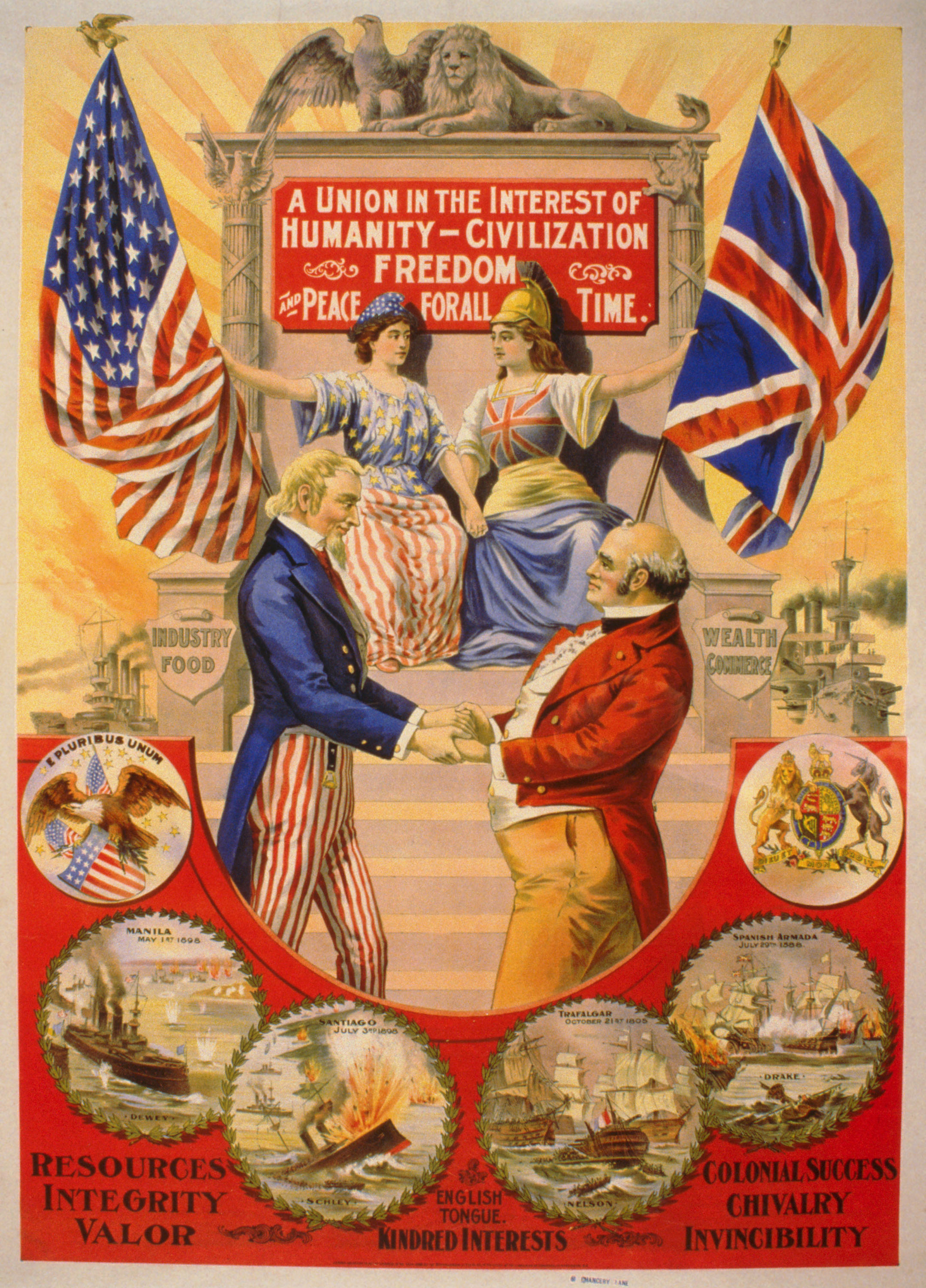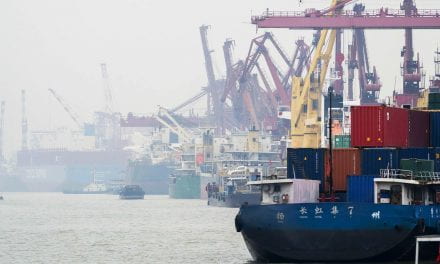By: Tim Bynion*
To say the election of Donald Trump more than a year ago led many to question their preconceived notions on the norms of American politics is quite an understatement. While his presidency has certainly made an impact within America in countless ways, Trump’s controversial and bombastic style is also affecting the course of America’s role in international affairs. For the United States, perhaps no international relationship is more crucial than its relationship with the United Kingdom. Dubbed the “Special Relationship” by Winston Churchill, the US-UK relationship has stood the test of time over many different administrations and political climates, and today, the two countries remain close allies. However, some recent actions by President Trump have led many to wonder if the “Special Relationship” can withstand this particularly turbulent moment in time. Thankfully, these concerns are mostly unwarranted, as the US-UK relationship can withstand its current strain due to its long history and the realities of contemporary international politics.
Before examining the details of this relationship, we must first discuss why many are now worried that the relationship might be in trouble. At the beginning of the Trump administration, events seemed to indicate the relationship would become stronger than ever. President Trump chose British Prime Minister Theresa May as his first official foreign visitor to the White House in January. This decision stands in contrast to President Obama’s first visit with then-Prime Minister Gordon Brown, which did not take place until the March after Obama’s inauguration and after another visit with the Prime Minister of Japan.[1] The fact that May was afforded a diplomatic visit so early into Trump’s term indicated his desire to fortify their respective countries’ relationship, especially in the trade arena. Additionally, both world leaders had a political interest in a successful diplomatic meeting, as May needed to prove that the UK would remain a world power in trade after it exits the EU, and Trump needed demonstrate his commitment to bilateral trade deals to assuage his critics who have accused him of promoting protectionism.[2] In essence, the elections of both May and Trump meant that the nature of the US-UK relationship was in for a shift, but the immediacy of this meeting led many to believe that the relationship would remain as strong as ever.
However, this feeling of optimism would prove to be misguided, as several events that would take place over the next several months would lead many to question Trump’s commitment to strengthening the “Special Relationship.” Like many of Trump’s controversies, this particular one stemmed from his use of Twitter. On June 3, terrorists killed eight people and injured forty-eight others with a van on the London Bridge. The day after the attack, President Trump took to Twitter to criticize London Mayor Sadiq Khan for his handling of the situation, saying “At least 7 dead and 48 wounded in terror attack and Mayor of London says there is ‘no reason to be alarmed!’”[3] Understandably, Mayor Khan was not pleased with these remarks, and his spokesperson stated that the mayor had “more important things to do than respond to Donald Trump’s ill-informed tweet that deliberately takes out of context his remarks.”[4] This incident helped to fuel concerns over the stability of the US-UK relationship.
These concerns were further exacerbated by another online debacle several months later. On November 29, President Trump retweeted an anti-Islam video from a far-right British group known as “Britain First.” When a spokesperson for Prime Minster May criticized the President for promoting this group, Trump responded to May with the following: “Don’t focus on me, focus on the destructive Radical Islamic Terrorism that is taking place within the United Kingdom. We are doing just fine!”[5] In response, Mayor Khan asserted that any official visits from President Trump to the UK should be immediately cancelled, and he called on Prime Minister May to do just that. The fact that the mayor of a major UK city actually called for the cancellation of all official visits from the President of the United States indicates the severity of this diplomatic situation.
Because of the rising tensions between the leaders of the US and the UK, many have wondered if the decades-long “Special Relationship” is in jeopardy. According to The Guardian, these incidents served as “a wake-up call for May and the Tories. Britain cannot rely on Trump’s America.”[6] Many people now see the interests of the US and the UK has irreconcilably different, and they view Trump’s comments as counterproductive in maintaining a fruitful international relationship. While these concerns are understandable, there is reason to believe that the “Special Relationship” will survive the Trump presidency. When discussing any issue of such international importance, it is crucial to fend off any alarmist notions with a tempered analysis of the facts.
For instance, the US-UK relationship is bolstered by many aspects that go beyond whichever leader is currently in power. According the US Embassy in the UK, the relationship was “strengthened by the United Kingdom’s alliance with the United States during both World Wars, in the Korean conflict, in the Persian Gulf War, in Operation Iraqi Freedom, and in Afghanistan, as well as through its role as a founding member of the North Atlantic Treaty Association (NATO).”[7] In other words, this relationship was forged in the some of the most turbulent times in world history. Therefore, it is unlikely that the ill-conceived actions of one US President could completely sabotage a relationship that was strengthened in the direst of circumstances. Of course, Trump’s tweets have done little to improve America’s good will with its friends across the pond, but it is always necessary to remember that Presidents and Prime Ministers come and go, and the “Special Relationship” has so far survived a number of administrations with differing priorities, politics, and diplomatic styles. There is no reason to think that the relationship will not be able to survive this particular debacle as well.
That being said, there is a necessity for the leaders in both countries to stop utilizing divisive rhetoric that only serves to escalate this situation. Obviously, President Trump needs to stop antagonizing May and Khan with his inflammatory remarks online, but he is not the only party to blame in this particular instance. Mayor Khan’s call to end all state visits from the US was irresponsible and reckless for a number of reasons. First of all, the idea that the UK can simply cease face-to-face communication with the US over the next three years is absurd given the amount of collaboration between the countries in organizations like the UN and NATO. However, a more fundamental issue is the fact that Khan’s proposal effectively ignores the decades-long history of goodwill between these two countries. As mentioned previously, Trump is the one who initiated these tensions, but calling for an end to US state visits will do nothing to relieve these tensions. Instead, Khan should offer to meet with Trump and express his concerns to him personally. This is of course no guarantee that Trump will change his ways in the future, but at the very least, it demonstrates a desire to continue the friendship between the US and the UK that has been fortified over many years of cooperation. In other words, there are ways to repair the “Special Relationship,” but it will require a conscious effort from the leaders of both countries.
In summary, President Trump is currently testing the limits of the “Special Relationship” between the US and the UK. His brazen criticism of British policies and attacks on British leaders have led to sharp criticism from people in both countries. In today’s world where countless threats to state security exist, the US and the UK form perhaps the most important alliance in the mission to promote norms of democracy and human rights around the world. The fact that this decades-old relationship is in jeopardy because of a squabble between their current leaders is unacceptable. Trump, May, and Khan all need to move away from the current arguments and consider the long-term implications of a rift between their two countries. If they are able to do, the “Special Relationship” will continue to remain strong and resilient throughout the Trump administration and for years to come.
[1] Stephen Collinson, “Trump welcomes May as US-UK relationship enters new era.” CNN, January 27, 2017. http://www.cnn.com/2017/01/26/politics/donald-trump-theresa-may-white-house-visit/index.html.
[2] Ibid.
[3] Martin Pengelly, “Donald Trump berates London mayor over response to terror attacks.” The Guardian, June 4, 2017. https://www.theguardian.com/uk-news/2017/jun/04/trump-berates-london-mayor-sadiq-khan-terror-attacks.
[4] Ibid.
[5] David Reid, “Trump isn’t welcome in UK after sharing far-right videos, London mayor says.” CNBC. November 30, 2017. https://www.cnbc.com/2017/11/30/londons-mayor-says-trump-not-welcome-in-uk-after-islam-tweets.html.
[6] The Guardian, “The Observer view of Trump’s insults to Britain,” December 2, 2017. https://www.theguardian.com/commentisfree/2017/dec/03/donald-trump-theresa-may-racism-special-relationship.
[7] U.S. Embassy & Consulates in the United Kingdom. “History of the U.S.-UK Special Relationship.” N.d. https://uk.usembassy.gov/our-relationship/policy-history/.
*Disclaimer: The content contained in the following material is the sole ownership of the author and does not reflect the views of the Towson University Journal of International Affairs nor Towson University in any respect whatsoever.







